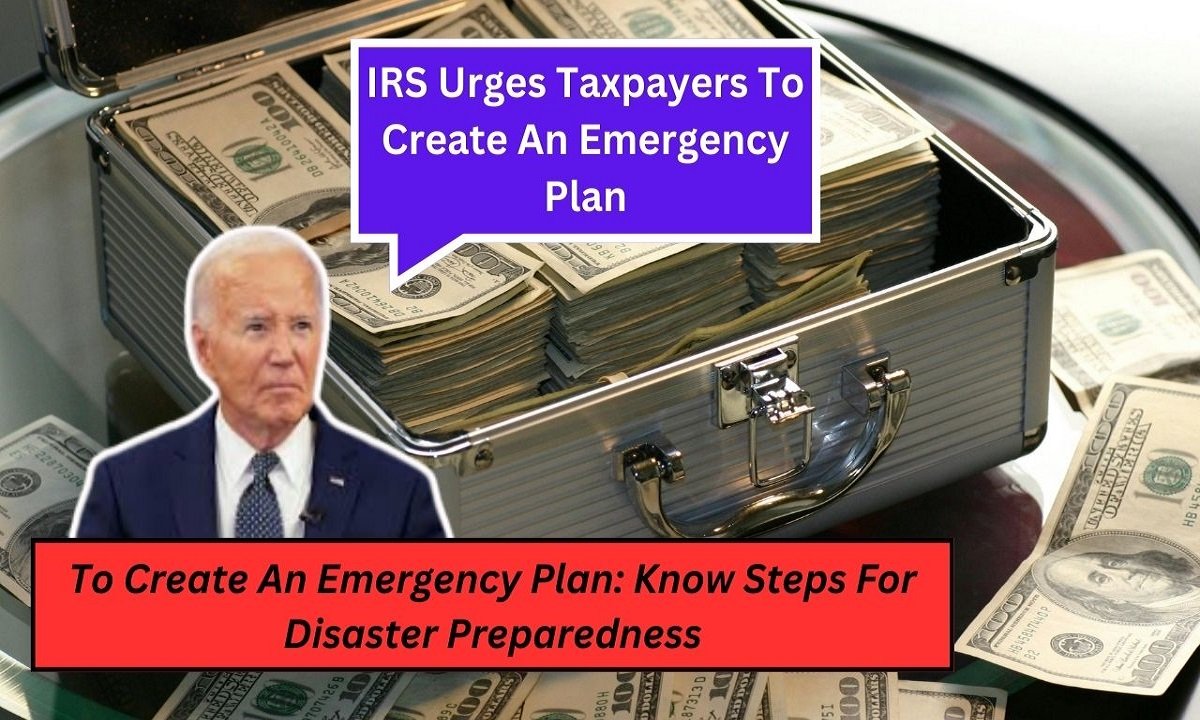We don’t often think about our taxes when we’re dealing with a storm or an emergency, do we? But the IRS (Internal Revenue Service) wants everyone to know that financial preparedness is just as important as having an emergency kit ready. Disasters—whether they’re hurricanes, wildfires, floods, or something else—can leave us in a scramble, and our financial information can be a vital part of recovery.
Creating a plan for your tax records may not sound thrilling, but it could make a big difference if disaster ever strikes. Let’s dive into some simple steps that can make your financial recovery smoother, should you ever face an unexpected situation.
Why You Need a Financial Emergency Plan
Imagine going through a natural disaster. You’re already dealing with the emotional toll, trying to stay safe, perhaps even managing property damage. In those moments, tax records are probably the last thing on your mind. However, having these documents and records can help you in the long run, especially if you need to file claims or apply for assistance. The IRS recommends having a financial emergency plan so you’re not left searching for crucial information when it’s needed most.
Tax records, insurance information, and financial documents are essential if you’re applying for government aid or tax relief after a disaster. Without a plan, these critical documents could be lost, damaged, or difficult to retrieve. So let’s go over what you can do to safeguard these records and ensure they’re ready when you need them.
Steps to Disaster Preparedness for Your Taxes
1. Digitize Important Tax Documents
One of the simplest things you can do is to make digital copies of all your important tax documents. Scan your tax returns, W-2s, 1099s, and other tax-related records. Keep digital copies in a secure location, like a cloud storage service, or an external hard drive. If a disaster occurs, having digital copies will allow you to access these documents from anywhere, even if the originals are damaged.
Consider storing these files in secure cloud-based services, as this can help you access them even if your physical devices are lost. Make sure to choose a platform with good security features, as your tax records contain sensitive information.
2. Secure Physical Documents in a Waterproof and Fireproof Safe
Not everything needs to be digital. Some people feel more comfortable having physical copies of their records, which is understandable. If this is you, consider investing in a waterproof and fireproof safe to protect your important documents. These safes are designed to withstand extreme conditions, keeping your records intact even in the worst scenarios.
Having physical copies on hand, stored securely, provides an additional layer of backup. This can be a great resource, especially if you’re not able to access your digital copies due to power outages or other tech-related issues.
3. Update Your Emergency Contacts and Financial Advisors
Do you have a financial advisor, tax preparer, or accountant? Make sure you have their contact information saved in a place where you can access it easily. If you’re dealing with an emergency and need quick access to your tax or financial information, these professionals can be incredibly helpful.
Updating your list of contacts regularly, and keeping it somewhere accessible, ensures that you have people to call if you need advice or assistance. Share your emergency plan with your financial advisors so they know where your records are stored and can assist if necessary.
4. Document Valuable Assets
When a disaster strikes, having a clear record of your valuable assets can speed up the process of applying for assistance or insurance claims. The IRS suggests that you take photos or videos of your belongings, especially high-value items like electronics, furniture, or jewelry. Store these records digitally alongside your tax documents so you can provide proof if needed.
Having visual documentation of your assets makes it easier to prove their condition and value, which can be helpful when dealing with insurance claims or reporting losses for tax purposes.
5. Know the Tax Relief Options Available After a Disaster
The IRS offers tax relief options to taxpayers impacted by federally declared disasters. If you’re aware of these options ahead of time, it can make a huge difference in your recovery process. Tax relief can include extended filing deadlines, waived fees, and other financial assistance programs. It’s worth familiarizing yourself with these options now, so you know what’s available if you ever need it.
Keep Your Plan Up to Date
Life changes, and so does your financial situation. That’s why it’s important to review your emergency plan and tax documents regularly. If you’ve moved, acquired new assets, or changed financial advisors, update your records to reflect these changes. Regularly revisiting your plan ensures that everything is current and ready, should you ever face an emergency.
Conclusion
While disaster preparedness isn’t something we always think about, it’s crucial for protecting our financial security. Having a financial emergency plan, especially for tax records, means that you’re one step ahead if disaster ever strikes. With simple steps like digitizing documents, securing physical copies, and knowing your relief options, you can ensure you’re prepared for the unexpected.
An emergency plan may seem small, but in tough times, it could be the key to bouncing back faster and with fewer headaches. Start building your plan today—it’s one way to make sure you’re financially prepared for whatever life throws your way.
FAQs
Why is it important to have an emergency plan for taxes?
An emergency plan helps you protect crucial financial documents and makes it easier to recover and apply for aid after a disaster.
What is the best way to store my tax records?
Digitally storing your tax records in secure cloud storage is ideal, but having physical copies in a fireproof, waterproof safe adds extra security.
How often should I update my financial emergency plan?
It’s a good idea to review and update your plan at least once a year, or anytime there’s a major change in your financial life.
Can I get tax relief if I’m affected by a disaster?
Yes, the IRS provides relief options for taxpayers in federally declared disaster areas, including deadline extensions and possible fee waivers.
Should I inform my financial advisor about my emergency plan?
Yes, sharing your plan with your financial advisor can ensure they have access to help you if an emergency affects your records.



